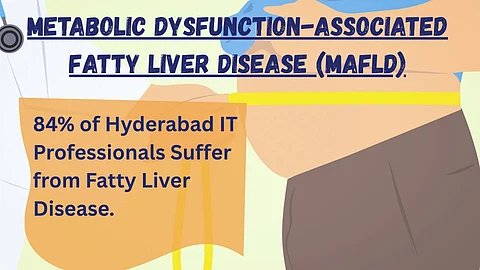The high incidence of fatty liver disease among young professionals is a reflection of India’s fast-paced urban lifestyle, particularly in tech hubs like Hyderabad, Bengaluru, Pune, and Gurugram. Health experts are urging companies to adopt more employee-friendly wellness policies, such as encouraging short physical breaks, offering healthier food options in cafeterias, and promoting mental health support.
At the individual level, simple lifestyle changes can go a long way in reversing or preventing fatty liver. Eating a balanced, home-cooked diet, limiting processed foods and sugar, exercising regularly, and getting enough sleep are essential steps. Annual health check-ups, including liver function tests, are also recommended for early detection and intervention.


